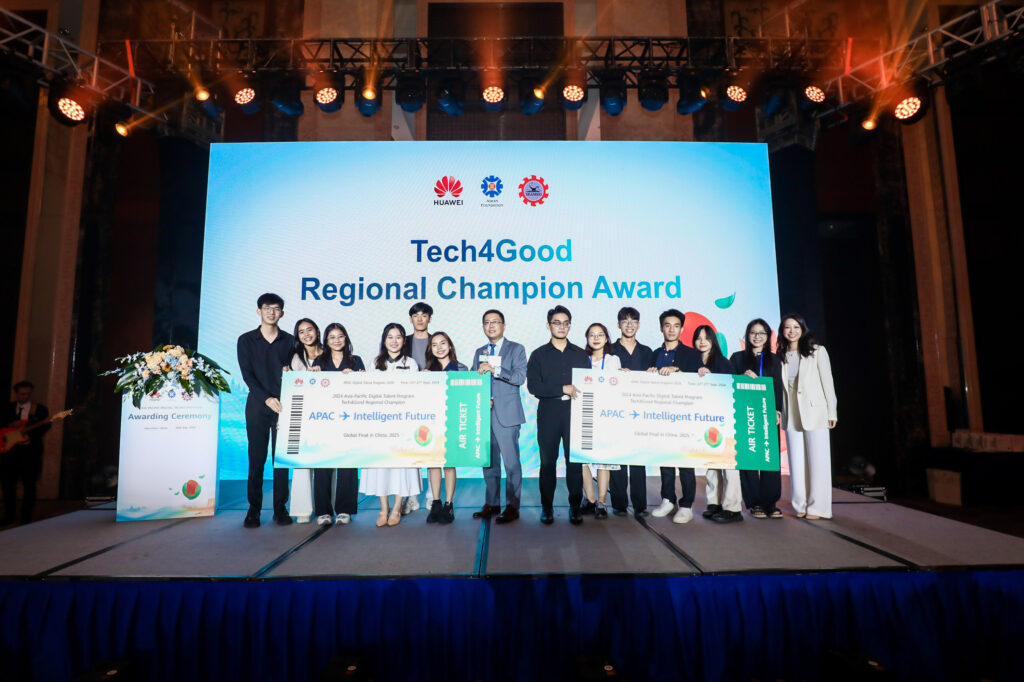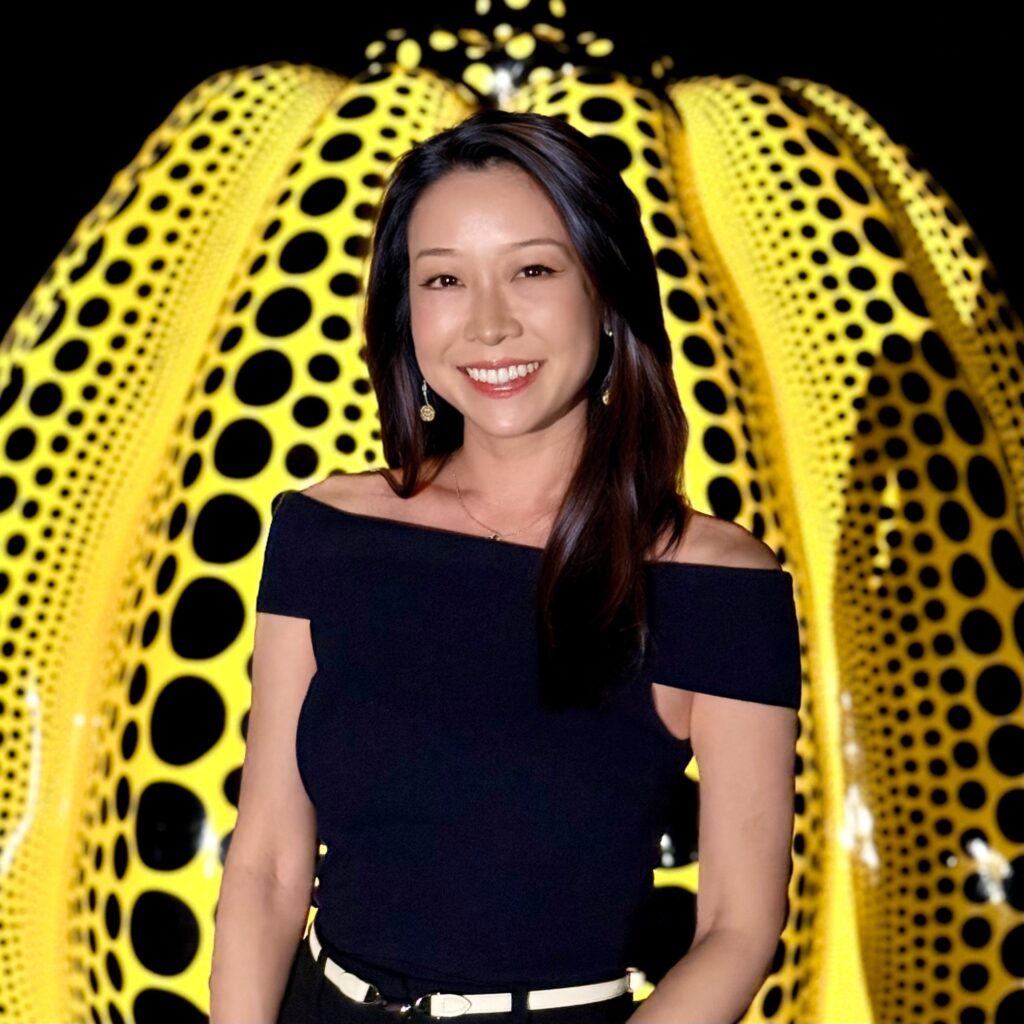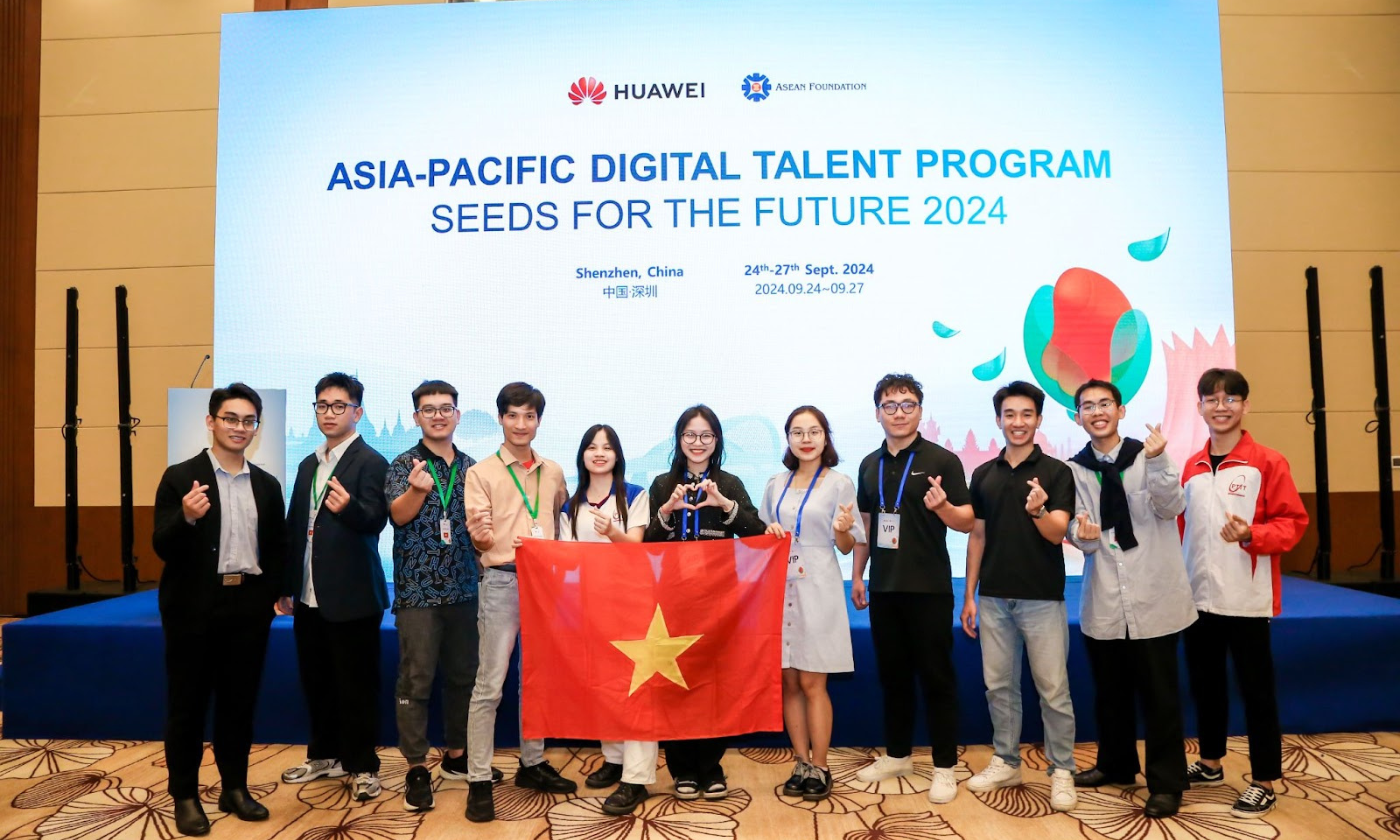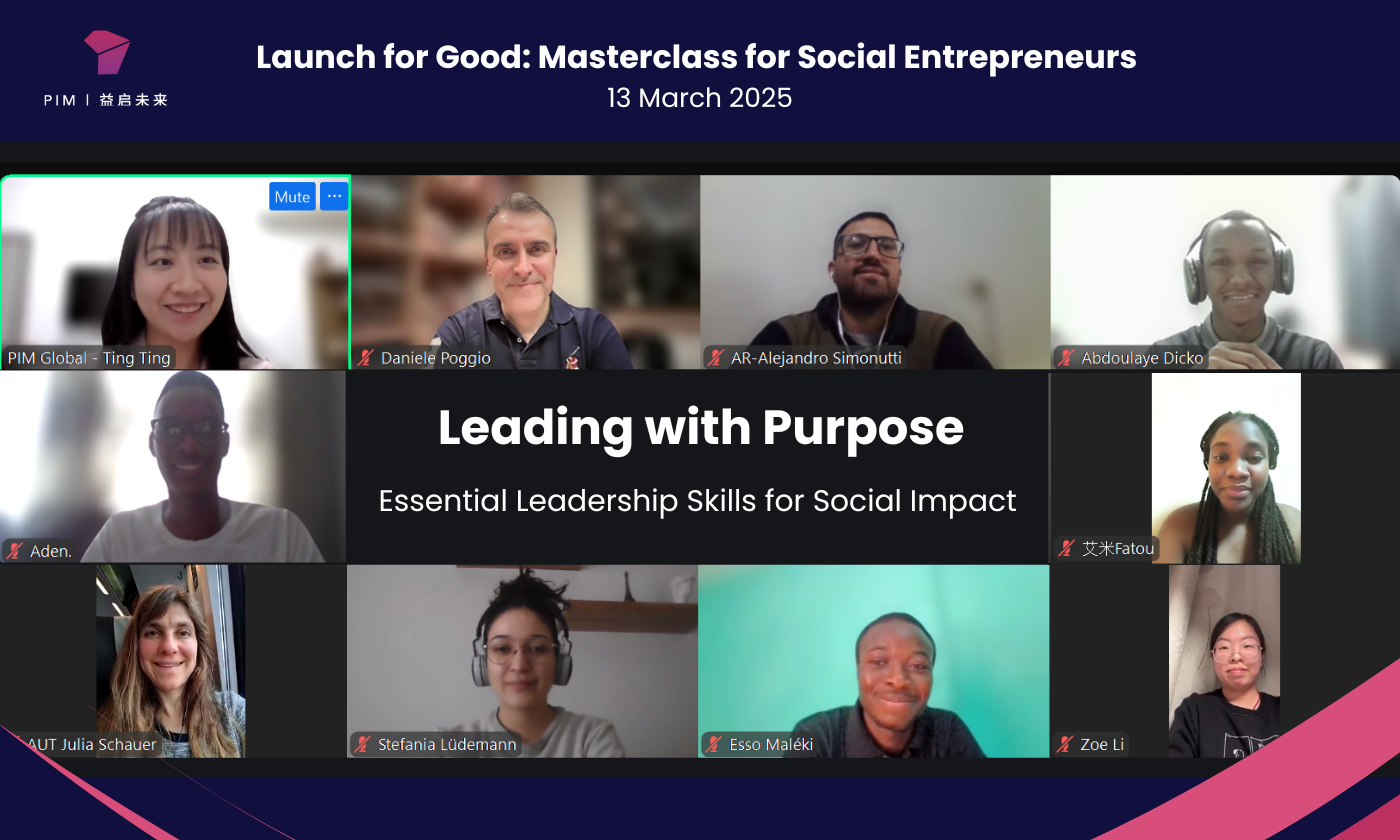As natural disasters like Typhoon Yagi devastate regions across Vietnam, a group of university students came together to apply cutting-edge technology to save lives. Through their innovative project, SkyNet, developed during the Tech4Good program, they aim to revolutionize disaster response systems in Vietnam by bridging the technology gap during natural disasters.
Responding to Typhoon Yagi: A Need for Innovation
In September 2024, Typhoon Yagi, Vietnam’s strongest storm in 30 years, wreaked havoc on northern Vietnam. With hundreds reportedly dead or missing, and damages amounting to VND 40 trillion (approx. US$1.63 billion), Yagi exposed the country’s vulnerabilities in disaster preparedness. Flooding, broken communication lines, and delayed rescue efforts contributed to the immense loss of life and property.
The Vietnam team (also named VNVD) saw the Tech4Good program as an opportunity to develop a solution that could help their community respond to these devastating natural events. SkyNet was born out of this necessity – a set of drones designed to locate flood-affected individuals faster and smarter, providing critical support to local rescue teams.
Flood rescue operations in Vietnam often rely on outdated methods, such as rowing boats, and damaged infrastructure – including 27,000 damaged cellular poles during Yagi – that cuts off communication between rescue teams and survivors. This leads to delays in rescuing people, sometimes taking five to seven days to locate individuals trapped in flooded areas. With climate change expected to increase the frequency and severity of such disasters, the VNVD team knew they needed to act quickly before the situation escalated further.
Bringing Vietnam to the Global Stage

While addressing an immediate local need, the VNVD team also saw the Tech4Good program as an opportunity to elevate Vietnam’s standing in the global tech industry. Competing against countries known for their technological innovations, such as Japan, China, and Korea, the team was eager to demonstrate that Vietnam could also lead in cutting-edge tech solutions.
“We want to bring the name of Vietnam to the world, so people know that Vietnam has citizens who can build advanced tech products and contribute to solving global challenges,” shared one team member.
SkyNet: The Solution for Faster, Smarter Rescue
SkyNet’s objective is simple: Find people during floods faster and more efficiently. The solution involves five drones equipped with AI and SAR technology.
Initially, the team considered using thermal sensors, but they realized that thermal technology struggles with accuracy in flooded areas due to water and physical barriers. After further research, they pivoted to SAR, a technology more commonly used in spatial imaging, and adapted it for flood rescue missions. SAR is typically expensive and bulky, but the team engineered a scaled-down, cost-effective version to make the system more affordable for widespread use. SAR technology enables drones to detect people and objects even in extreme conditions – whether at night, in stormy weather, or when obstacles like debris block traditional thermal sensors.
Meanwhile, the AI algorithms used in SkyNet apply reinforcement learning with human feedback, enabling the drones to identify and locate individuals with precision.
“We learned about these technologies in school, but using them to solve real-world issues helped us understand their true potential,” said Pham Quynh Trang (VNVD team member).
As the team members primarily came from software engineering backgrounds, working with hardware was new to them. They drew on their knowledge of physics and quickly learned on the spot to design a system that could work effectively under extreme conditions. Their adaptability in applying classroom knowledge to real-world problems became a key factor in their success.
Guidance That Made the Difference

The VNVD team credits much of their success to the strong mentorship they received from the Purpose in Motion (PIM) team. They made special mention of two mentors, Wei Zhang Chuan and Kenny Leung, whose invaluable guidance shaped the project’s development.
The team found Kenny to be a constant source of positivity and energy throughout the program. “He always brought so much energy to every session,” the team shared. “His positive spirit lifted our mood when we were feeling overwhelmed. He helped break down the stress and kept us moving forward.”
Wei played a crucial role in refining the team’s strategy. His contribution went beyond providing technical advice – he engaged with each member’s ideas, helping to consolidate them into a cohesive plan. He encouraged open communication and fostered a collaborative atmosphere within the team. “Wei didn’t just provide feedback,” one team member said. “He gathered our ideas and turned them into something valuable. He helped us implement our ideas in a way that made sense for our business model.”
An example of Wei’s impactful guidance came just an hour before their final pitch. The team was rehearsing when Wei posed a critical question: What happens to your business model if there’s no flood? This led the team to enhance its pricing structure by introducing a recurring subscription model to ensure SkyNet’s long-term sustainability, even in periods without disaster. Wei’s push to consider both short-term and long-term pricing strategies helped the team identify gaps they hadn’t previously considered and significantly strengthened their pitch.
A Memorable and Meaningful Experience
For the VNVD team, the Tech4Good journey was about more than building a tech solution – it was an opportunity to connect with like-minded people, solve real-life problems, and build lasting friendships.
“It was a really memorable experience that I will treasure for a long time to come,” one team member shared. “I’m really grateful for the friendships I made beyond the competition – after the program concluded, we chatted until the early hours and connected on a deeper level. I had a chance to understand their stories and cultures, which made the experience even more valuable.”
The program also fulfilled their desire to meet others passionate about tech and driven by the need to create solutions for real-world issues.
Guidance for Future Innovators
The VNVD team has valuable advice for future participants in the Tech4Good program: Focus on solving real problems. They believe their project stood out because it addressed a pressing local issue with a practical, effective solution. The devastation caused by Typhoon Yagi gave their work a sense of urgency and relevance, making SkyNet a solution with immediate potential.
They also stressed the importance of understanding your audience. During their pitch, they structured their presentation so that even judges without a tech background could grasp the significance of their solution. By focusing on the problem their technology solved, rather than its technical complexities, they communicated their ideas clearly and effectively.
Building strong team dynamics was another crucial element. As with many teams, VNVD encountered initial friction, but a late-night discussion about shared goals helped them align their priorities and work together more effectively.
Looking Ahead: SkyNet’s Future
With the regional competition behind them, the VNVD team is now preparing to scale SkyNet for commercialization. Over the next two years, they plan to validate their solution with a rental model. Over the following five years, they aim to implement a subscription model that includes drone rentals, personnel training, software maintenance, and future updates, targeting local governments as their main customers. This approach will ensure recurring revenue and encourage local governments to invest in flood prevention and preparedness. The VNVD team’s journey exemplifies how young innovators can turn classroom knowledge into life-saving solutions. With mentorship and the right resources, the VNVD team is not only addressing a critical issue in Vietnam but also positioning themselves as future leaders in disaster management technology.
Team VNVD
Connect with Team VNVD
- Nam Tran Dang
- Trang (Chanity) Pham Quynh
- Dinh Hoang Anh
- Thi Thu Trang Nguyen
- Mai Thi Phuong
- Cao Sy Duong
Participation Year: 2024
Country: Vietnam
Program Name: Tech4Good (Asia-Pacific)
Contributors

Ziyi Wang, Interviewer & Writer
Ziyi Wang is a member of the Purpose in Motion team, where she supports initiatives such as the Tech4Good programme.
In her full-time capacity based in Singapore as a manager in AVPN’s Impact Investing team, she works to increase the flow of capital towards impact in Asia. AVPN is recognised as Asia’s leading social investment network.
With experience in impact investing, strategy consulting, CSR, and social entrepreneurship, Ziyi has lived across Singapore, Hong Kong, and Beijing. She holds a degree in Sociology from the National University of Singapore.
Outside of work, Ziyi enjoys trail running, street photography, and volunteering in her community.
LinkedIn: https://www.linkedin.com/in/ziyiw/

Melody Su, Editor
Melody Su, born in New Jersey and raised in California, is a dedicated daughter of Taiwanese immigrants with a passion for fostering the next generation of global scholars. Having lived and worked in five countries, including Italy, Spain, China, Taiwan, and most recently Japan, Melody brings a rich, cross-cultural perspective to her nearly decade-long career in education.
Melody holds a Bachelor’s degree in Sociology from UCSB and a Master’s in Postsecondary Administration & Student Affairs from USC. Her journey led her to China, where she spent three and a half years working as an international admissions counselor and reconnecting with her Chinese cultural roots. She is the founder of Episteme Nexus (EpNex), a consultancy that supports small-to-medium-sized enterprises and educators in program management, leadership development, and more. Through her podcast, EpNex: Education 360, she explores topics on education, mentorship, technology, and entrepreneurship.
Currently a doctoral candidate at Northeastern University, studying AI in education with a concentration in workplace learning, Melody is also an active board member and treasurer of the Graduate School Education Research Association (GSERA). Outside of work, she enjoys traveling, hiking, binge-watching Netflix, and solving logic puzzles.
LinkedIn: https://www.linkedin.com/in/melodylsu/




